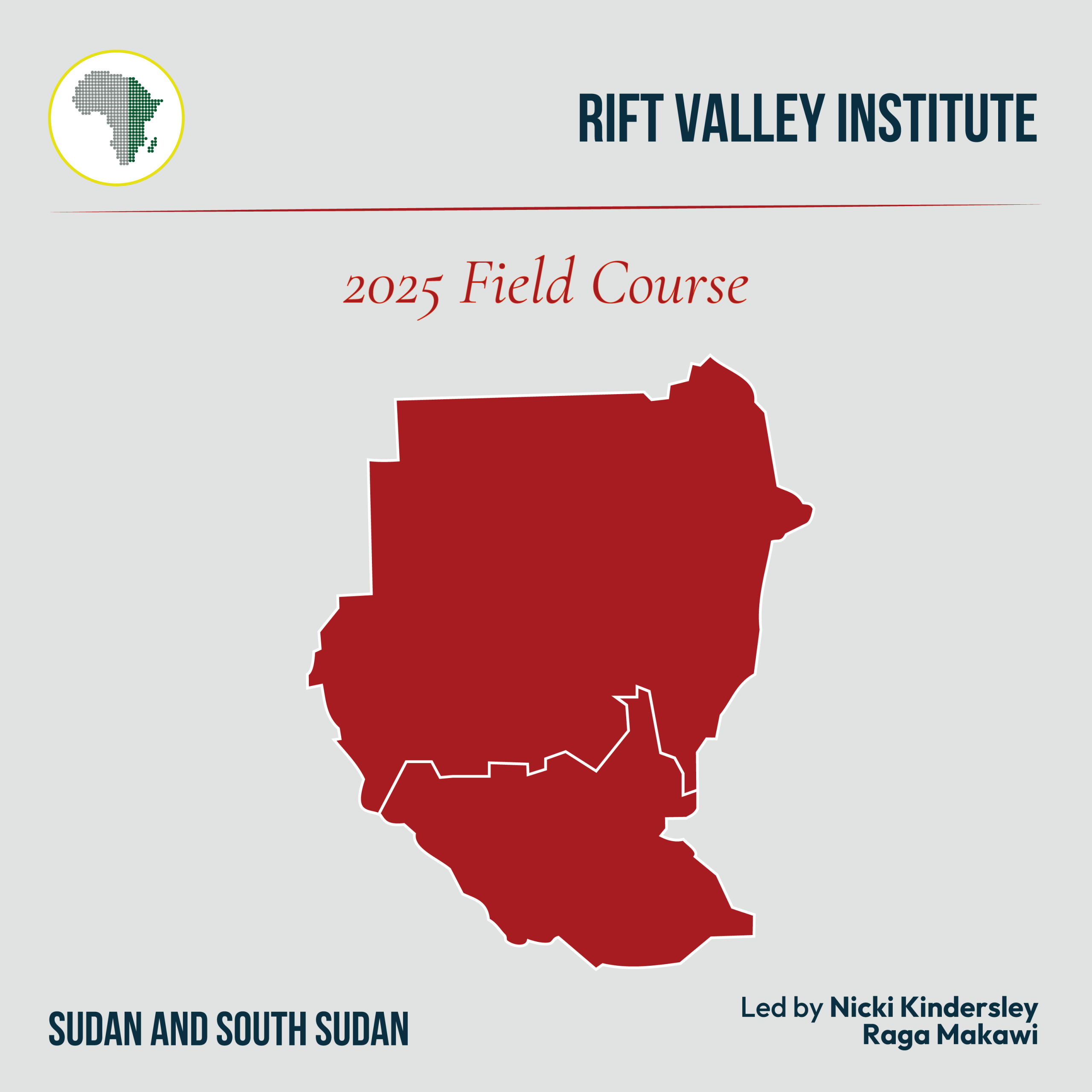
Note: Owing to unforeseen circumstances, the Sudan and South Sudan course has been postponed. Revised dates will be shared in due course.
THEME: ‘WAR MAKES STATES AND STATES MAKE WAR’
Led by Nicki Kindersley and Raga Makawi
Failed transitions, war and economic collapse have shaped Sudan and South Sudan in the last year. Our course will tackle immediate questions of the dynamics of regime collapse and violent contestation for control and the political economies of famine, mass displacement and forced migration. It also explores the historical structures of how armies and conflicts work; the renewed political economies of violence; the impacts of changing climate, extractive economies, labour markets and food systems; and generative civic action under extreme conditions of violence and instability.
The course team of academics and activists will discuss new research insights into Sudanese and South Sudanese definitions of democracy; sovereignty as part of emerging grassroots political projects; genealogies of armies and security systems; the politics of humanitarian aid; and the more recent antiwar projects and a possible long-term transition into peace.
Key Teaching Team
Dr Sharath Srinivasan | Co-director, Centre of Governance and Human Rights, University of Cambridge
Dr Sharath Srinivasan is the David and Elaine Potter Associate Professor at the University of Cambridge’s Department of Politics and International Studies, a Fellow of King’s College Cambridge, and Co-Director of the University’s Centre of Governance & Human Rights (CGHR). Sharath lived and worked in Sudan in the early 2000s and has been researching in and on the region ever since. His book, When Peace Kills Politics: International Intervention and Unending Wars in the Sudans, was published in 2021 (Hurst/OUP). He is also co-editor of Making and Breaking Peace in Sudan and South Sudan: The Comprehensive Peace Agreement and Beyond (British Academy/OUP, 2020). Alongside longstanding work on Sudan, he researches communication technology and politics in Africa, and co-founded the non-profit digital social research spinout, Africa’s Voices (www.africasvoices.org). Sharath was elected as a Fellow of the Rift Valley Institute in 2015 and became a Trustee in 2023. He is also a Trustee of the British Institute in Eastern Africa.
Abubakr Omer | Resilience and Sustainability Strategist, Agrifood Systems Researcher, and Policy Advisor, Rwanda
He leads transformative initiatives to cultivate self-reliant communities in conflict and climate-impacted regions. His focus is on designing solidarity-based models within agrifood systems to drive comprehensive economic development. With extensive experience across public and private sectors, civil society, and academia, he forges strategic partnerships and transborder collaborations to meet localized needs and drive systemic change.
Dr Harriet Kuyang Logo | International Law, International Human Rights Law, Women and Child Law at the University of Juba, South Sudan
She is an expert in Democratic Governance, Access to Justice, and the Rule of Law, with extensive experience evaluating UN interventions. She has taught International Law, Human Rights Law, and Women and Child Law at the University of Juba and has published extensively on transitional justice, International Humanitarian Law, customary law, and gender issues. Currently, Dr. Kuyang is a fellow at the Rift Valley Institute and serves as the Gender Lead for the Peacebuilding Opportunities Fund.
Amar Jamal | Managing Editor, Atar Magazine, Uganda
He is the Managing Editor of Atar Magazine in Uganda, working in both English and Arabic. With over ten years of experience in media across Sudan and South Sudan, Amar has published research with the Rift Valley Institute and the Small Arms Survey. He holds a master’s degree in Social Anthropology from the Institute of Graduate African Studies at Cairo University and is a former fellow at Africa is a Country.
The fee for the course is USD 2,500.
Learn more about RVI’s education and training programme here.



